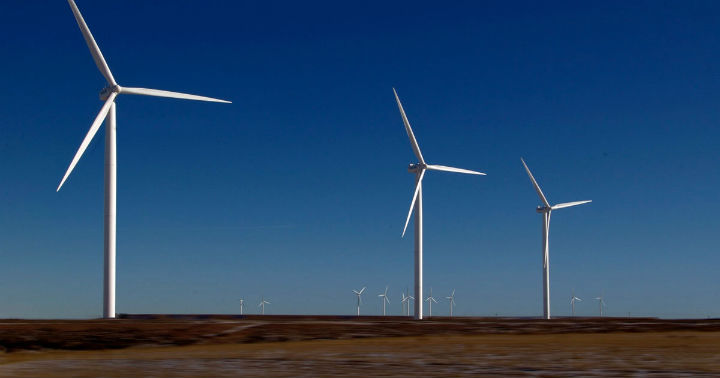climateatlas.ca
The University of Winnipeg’s Prairie Climate Centre announces CLIMATE ATLAS OF CANADA
FOR IMMEDIATE RELEASE – WEDNESDAY, APRIL 4, 2018
TORONTO, ONT: Canadians now have a map to guide them through the complexities of climate change.
The Climate Atlas of Canada – launched today in Toronto by the Honourable Catherine McKenna, Minister of Environment and Climate Change Canada, and the University of Winnipeg’s Prairie Climate Centre – combines climate science, mapping and storytelling to bring the global issue of climate change closer to home for Canadians.
From Toronto to Regina to Victoria and beyond, the tool allows users to explore what unprecedented warming could mean for their towns, cities or regions in the decades ahead. From an increase in searing hot days and warmer nights, to more precipitation and fewer days below zero, it shows no region will remain untouched as Canada’s climate changes.
The Atlas is a unique tool in the world. In addition to allowing Canadians to interactively visualize climate data, it also includes documentary videos that bring the human dimension of climate change to life, providing a holistic narrative about how climate change could affect various aspects of Canadian society.
In addition to the launch of the Atlas, the Prairie Climate Centre released a series of reports summarizing what might be expected for Canada’s major cities if we continue to follow a high carbon scenario. For instance, the reports show cities that already experience hot summers will face large increases in both daytime and nighttime temperatures, while many historically cooler cities will have to start coping with dangerous heat for the first time. Such changes would have significant implications for the health and wellbeing of residents, for city infrastructure and for local economies.
To increase awareness of the impacts of climate change and encourage action, the Government of Canada provided a $1 million contribution to the Prairie Climate Centre’s ongoing development of the Climate Atlas of Canada. The Province of Manitoba, the Social Sciences and Humanities Research Council, and Great West Life have also contributed to development of the Atlas. It aims to inspire local, regional and national action that will support Canada’s shift from climate risk to resilience.
THE IMPACT – MAJOR CITIES
The Climate Atlas of Canada presents data and reports indicating that nearing the end of the century (2051-2080), if we continue to follow a high carbon scenario (known as RCP 8.5), Canadian cities are projected to see significant changes:
- Calgary: 44 more frost-free days a year
- Charlottetown: 50 more frost-free days a year
- Edmonton: typical coldest winter day -28.8 °C (up from -35.1 °C)
- Fredericton: 29 more +30 °C days a year
- Halifax: typical hottest summer day 33.4 °C (up from 29.8 °C)
- Iqaluit: 103mm more precipitation each year
- Montreal: Typical hottest summer day 37.1 °C (up from 32.9 °C)
- Ottawa: 24 more +20 °C nights a year
- Quebec: 63mm more winter precipitation each year
- Regina: Typical hottest summer day 40.7 °C (up from 35.3 °C)
- John’s: 25 more +25 °C days a year
- Toronto: 43 more +30 °C days a year
- Vancouver: Typical hottest summer day 34 °C (up from 29.3°C)
- Victoria: 45 more +25 °C day a year
- Whitehorse: 50 more frost-free days a year
- Winnipeg: 36 more +30 °C days a year
- Yellowknife: 37 fewer -30 °C days a year
The Prairie Climate Centre team, at the University of Winnipeg, is made up of climate scientists, social science researchers, filmmakers, and communication specialists. Their goal is to inspire citizens’ participation, to support communities, and help Canadian society move from risk to resilience.
For a decade, Dr. Ian Mauro has been developing climate change documentaries across Canada, which involve interviews with and insights from over 300 Canadians from all walks of life. The Climate Atlas of Canada is a platform that mobilizes these perspectives and links them with the best available climate science.
For over thirty years, Dr. Danny Blair has been one of Western Canada’s leading climatologists, and has worked for his entire career to create awareness regarding climate change as a pressing issues facing society.
Important Information for Media
- Journalists – access the electronic media information kit .
- Journalists – access the Canadian City Reports.
QUOTES
“In many parts of Canada, it can be tough to recognize how climate change is affecting our lives today, and to imagine the extent of changes ahead. Tools like the Climate Atlas can show us how we can be affected. The more we learn about the changes in store for our cities, regions and country, the more equipped we will be to make smart decisions to minimize risks to our infrastructure, communities and economy.”
Minister of Environment and Climate Change, Catherine McKenna
“Our climate researchers are at the forefront of climate mapping, communications, and citizen engagement nationally and internationally. Their work demonstrates the power of knowledge mobilization – a core strategic pillar of our university – and how we translate research into action that benefits communities, policy makers, and society as a whole”.
University of Winnipeg President and Vice-Chancellor, Dr. Annette Trimbee
“The Climate Atlas of Canada innovatively brings climate science and storytelling together, allowing citizens across the country to learn about climate change impacts and solutions. We believe the Atlas can help guide the country towards a less risky and more sustainable future.”
Prairie Climate Centre Co-Director and Principal of Richardson College for the Environment at UWinnipeg, Dr. Ian Mauro
“The Climate Atlas of Canada is an important tool for the country; it will help create awareness, and allows us to visualize and prepare for future impacts from coast to coast to coast. Never before have Canadians had access to climate data in such an accessible and engaging way.”
Prairie Climate Centre Co-Director and Climatologist at UWinnipeg, Dr. Danny Blair
“The Climate Atlas of Canada is an exciting and useful tool to help Canadians understand the impacts of climate change on our country and brings data and stories from 2,000 towns, cities and regions together into a sharply focused picture of Canada’s capacity for hope and resilience.”
Glen Murray, Executive Director, Pembina Institute
“For most of my life, I’ve been combining science and communications to engage Canadians regarding the importance of the environment. Along this journey, I’ve collaborated with Dr. Mauro on his climate change filmmaking, and believe the Climate Atlas of Canada is a game changer. I hope it helps all Canadians realize the need for immediate and widespread climate action.”
Scientist, Broadcaster and Environmentalist, Dr. David Suzuki
QUICK FACTS
The Climate Atlas of Canada launch includes:
- The interactive Climate Atlas of Canada
- Topics on Cities, Climate Science and Taking Action
- Documentary videos about climate change across Canada embedded into the Atlas
- Sign up option to keep updated on new content being released
- Reports summarizing projected climate changes for Canada’s major cities
- Detailed data download and visualization tools across the country
The Climate Atlas of Canada includes the following assets:
- Data about 2000 Towns, Cities and Regions
- Video documentaries across Canada (based on 300+ interviews)
- 250 interactive map layers
- 25 climate variables
- 12 global climate models
- 2 emission scenarios (RCP 8.5 and RCP 4.5)
Drs. Ian Mauro and Danny Blair are available for one-on-one media interviews.
Media Contacts:
Diane Poulin, Senior Communications Specialist, The University of Winnipeg
P: 204.988.7135
C: 204.293.1167
Caroline Thériault
Press Secretary
Office of the Minister of Environment and Climate Change
613-462-5473
Media Relations
Environment and Climate Change Canada
819-938-3338 or 1-844-836-7799 (toll free)





